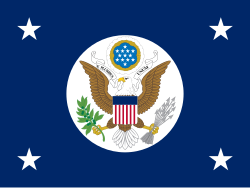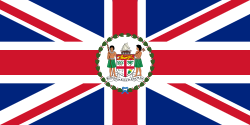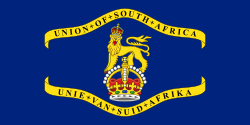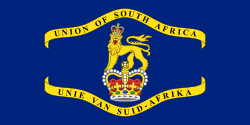Flag of the
governor of Aden (1937–1963)
Flag of the
governor of Anguilla (1990–1999)
Flag of the governor-general of Australia (1908–1936)
Flag of the
governor of the Bahamas (1869–1904; 1953–1964)
Flag of the governor of the Bahamas (1904–1953)
Flag of the governor of the Bahamas (1964–1973)
Flag of the
governor of Barbados (1870–1966)
Flag of the
governor of Bermuda (1875–1910)
Flag of the governor of Bermuda (1910–1999)
Flag of the governor of British Guiana (1906–1955)
Flag of the governor of British Guiana (1955–1966)
Flag of the governor-in-chief of the British Leeward Islands (1952–1959)
Flag of the governor of British Somaliland (1950–1952)
Flag of the governor of British Somaliland (1952–1960)
Flag of the governor-in-chief of the British Windward Islands (1903–1953)
Flag of the governor-in-chief of the British Windward Islands (1953–1960)
Flag of the
governor of Burma (1939–1948)
Flag of the governor-general of Canada (1901–1921)
Flag of the governor-general of Canada (1921–1931)
Flag of the
governor of Ceylon (1875–1948)
Flag of the high commissioner of Cyprus (1905–1925) and the
governor of Cyprus (1925–1960)
Flag of the governor of the Falkland Islands (1925–1948)
Flag of the governor of the Falkland Islands (1948–1999)
Flag of the
governor of Fiji (1877–1883)
Flag of the governor of Fiji (1883–1903)
Flag of the governor of Fiji (1903–1908)
Flag of the governor of Fiji (1908–1970)
Flag of the
governor of Gibraltar (1875–1939)
Flag of the governor of Gibraltar (1939–1982)
Flag of the governor of Gibraltar (1982–1999)
Flag of the
governor of Hong Kong (1910–1955)
Flag of the governor of Hong Kong (1955–1959)
Flag of the governor of Hong Kong (1959–1997)
Flag of the
governor of Jamaica (1875–1906)
Flag of the governor of Jamaica (1906–1957)
Flag of the governor of Jamaica (1957–1962)
Flag of the governor of Jamaica (1962)
Flag of the
governor of Malta (1875–1898)
Flag of the governor of Malta (1898–1943)
Flag of the governor of Malta (1943–1964)
Flag of the
governor of Mauritius (1869–1906)
Flag of the governor of Mauritius (1906–1968)
Flag of the
governor of Montserrat (1971–1999)
Flag of the
governor of Newfoundland (1870–1904)
Flag of the
governor of Newfoundland (1904–1949)
Flag of the resident commissioner of the British New Hebrides (1952–1980)
Flag of the
governor of New Zealand (1868–1874)
Flag of the governor of New Zealand (1874–1908)
Flag of the governor of New Zealand (1908–1936)
Flag of the
governor of North Borneo (1915–1946)
Flag of the governor of North Borneo (1948–1963)
Flag of the
governor of Sarawak (1947–1963)
Flag of the
governor of Seychelles (1903–1961)
Flag of the governor of Seychelles (1961–1976)
Flag of the
governor of Singapore (1946–1952)
Flag of the governor of Singapore (1952–1959)
Flag of the governor of the Solomon Islands (1956–1978)
Flag of the governor-general of South Africa (1931–1952)
Flag of the governor-general of South Africa (1952–1961)
Household flag of the governor of Southern Rhodesia (1940–1952)
Flag of the governor of Southern Rhodesia (1951–1952)
Household flag of the governor of Southern Rhodesia (1952–1970)
Flag of the governor of Southern Rhodesia (1952–1970)
Flag of the governor of the Straits Settlements (1904–1946)
Flag of the
governor of Tanganyika (1923–1961)
Flag of the governor of Trinidad and Tobago (1958–1962)
Flag of the
governor of Tuvalu (1976–1978)
Flag of the commissioner of Weihaiwei (1903–1930)
 Flag used by Thai Embassies
Flag used by Thai Embassies  Flag used by Thai Consulates and Consulates-general
Flag used by Thai Consulates and Consulates-general  Flag used by British Embassies
Flag used by British Embassies  Flag used by British Consulates and Consulates-general
Flag used by British Consulates and Consulates-general 





























































































































